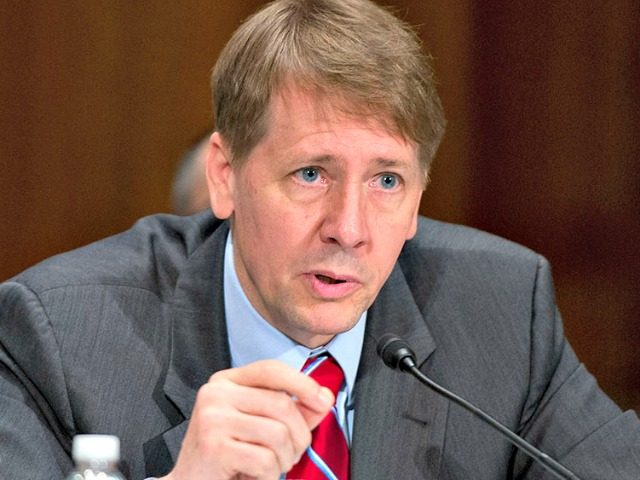The Consumer Financial Protection Bureau (CFPB) faces increasingly dire legal challenges. One court case could eliminate the consumer finance agency altogether.
PHH, a mortgage lender in New Jersey, recently won a serious of constitutional challenges to the bureau’s structure. Several other financial firms sued the CFPB for abusing its power to regulate consumer finance. Consumer finance groups remain optimistic about their battles against the CFPB.
Ari Karen, a partner at Offit Kurman, said, “It used to be you had to be either really brave or crazy to challenge the CFPB, but now I don’t think you have to be either. Now it’s not just the outliers anymore. The ground the CFPB was on just a year ago was solid and safe, and now it’s become rocky and unclear.”
In March, a district court judge dismissed a lawsuit against the payment processor Intercept Corp., criticizing the CFPB for failing to present sufficient evidence. In another case, Pathfinder Payment Solutions asked a judge to sanction the CFPB, arguing the Bureau “knowingly exceeded its statutory authority, deliberately disregarded the law and consciously distorted the facts.”
John Grosa Smith, an attorney representing Pathfinder, stated, “We were collateral damage in their effort to go after a debt collector and the debt collection industry as a whole.”
In December, a federal district judge dismissed three of the four claims the CFPB brought against Prime Market Holdings, a credit repair company. Last year, a federal judge dismissed a lawsuit brought against the Accrediting Council for Independent Colleges and Schools, an accreditor of for-profit colleges, saying the CFPB lacked the authority to investigate the Accrediting Council.
State National Bank of Big Spring, a Texas community bank, waged the first major legal battle against the CFPB in 2012. The Texas community bank alleged that CFPB director Richard Cordray’s recess appointment was unconstitutional. Those challenging the CFPB, including PHH Mortgage, allege that the agency and its single director retain unchecked power, with little to no oversight from Congress and the president.
The Trump administration recently filed an amicus brief in the PHH Mortgage court case, arguing that the court should deem the CFPB’s structure unconstitutional and grant Trump the authority to fire CFPB director Richard Cordray at will. The Department of Justice stated in its amicus brief, “In sum, a removal restriction for the Director of the CFPB is an unwarranted limitation on the President’s executive power.”
The CFPB, created by the Dodd-Frank financial overhaul, stipulates that the CFPB director serves a five-year term, and may only be terminated by the president for neglect of duty or malfeasance. In PHH’s lawsuit, the D.C. Circuit Court previously ruled the CFPB’s structure unconstitutional, which meant that the President could fire the CFPB director. The D.C. Circuit Court will hear the case en banc in May.
PHH Mortgage, in its lawsuit, argues that the court should go further than ruling the CFPB’s structure unconstitutional. Instead PHH argues that the judges should rule that the entire agency must be eliminated. PHH argues in its brief that the protections against firing the director “is not an adequate or appropriate remedy because it would solve only one of the CFPB’s multiple structural problems while creating a new agency structure that Congress likely did not intend.” The brief continued, “In light of the many constitutional problems that plague the CFPB’s structure, the appropriate remedy is to strike down the CFPB in its entirety.”

COMMENTS
Please let us know if you're having issues with commenting.